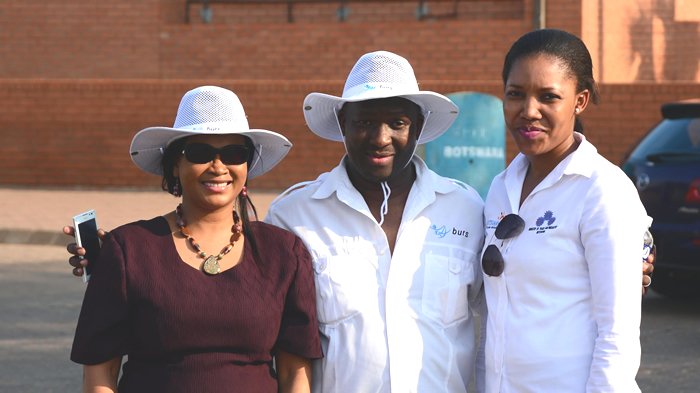Kelebogile Maureen Lekaukau, the second of seven children, grew up with three brothers and three sisters. Their parents were teachers, and so she learned early in life to value knowledge and an education. When Kelebogile went to university, she earned her bachelor's degree in economics and a master's degree in trade in the United States of America. She knows very well what a challenge it is for trade to drive development in a landlocked country like hers: Botswana.
Kelebogile Maureen Lekaukau has made good use of that education. Most recently, in November 2015, as part of a visit to see first-hand how international trade takes place, Kelebogile joined several colleagues at the border-crossing post with neighbouring South Africa.
The visit followed a training workshop on trade facilitation. While her colleagues from the Botswana Unified Revenue Services - the country's customs authority - explained trade facilitation processes and collaboration within the Southern African Customs Union, Kelebogile listened attentively. She has a vocation: she wants to help her country to modernize and diversify its trade.
On the path to that visit, Kelebogile went through many steps.
She first learned about UNCTAD during her university studies. Years later, she had the privilege to represent her country as a delegate at different multilateral forums in Geneva, Switzerland. Participating in various meetings and negotiations at the World Trade Organization and UNCTAD, she was able to see how the multilateral system worked in practice.
She joined the 2003 Almaty and 2014 Vienna processes for landlocked countries, processes relevant to a country such as hers, with no direct access to the ocean.
She was involved in the preparations for UNCTAD XIII (2012), the ministerial conference held every four years.
She also took part in the early stages of the World Trade Organization's negotiations on trade facilitation - which since then resulted in the 2014 Agreement on Trade Facilitation in Bali, Indonesia.

Mr Gofaone Gabositwe (Botswana Unified Revenue Service)
Kelebogile is a woman with clear ideas. "The Agreement on Trade Facilitation and the Vienna process are very much tied together", she says. In fact, she formally requested UNCTAD support for Botswana's trade facilitation programme prior to a meeting for landlocked developing countries in Mongolia. During that meeting in early 2014, Poul Hansen, an UNCTAD expert on transit and trade facilitation, "responded so quickly" to the request for assistance, she enthusiastically points out.
Botswana has since then become one of the first African countries to ratify the World Trade Organization's Agreement on Trade Facilitation. That work was led by the Technical Committee on Trade Facilitation of Botswana, which Kelebogile chairs as part of her functions at the Ministry of Trade and Industry. "Thanks to UNCTAD, meaningful progress has been achieved on the Agreement on Trade Facilitation obligations… UNCTAD deserves a lot of credit for the advances Botswana has made so far", she says.
Her expectations are not that the United Nations body would do the work for Botswana, but rather to help build up the country's capacity, so that Botswana can implement its multilateral commitments itself. Apart from trade facilitation, Kelebogile wants to strengthen her collaboration with UNCTAD in a number of areas, including trade in services, trade policies and Aid for Trade.
She is pleased to see how trade facilitation in Botswana has improved over the last years, but she also realizes that there is room for much more work and is counting on UNCTAD to continue its collaboration. She can count on that.



